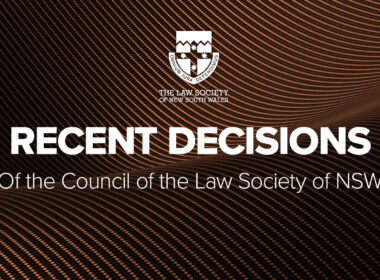Everyone makes mistakes: often they are inconsequential and easily remedied. Occasionally, in legal practice, you may discover a mistake that has caused or may cause a loss to your client.
When that type of mistake happens, it is important to take a step back, look at the overall picture, and plan what to do next. There are a few practical and ethical considerations to take into account.
Should I tell the client?
Lawyers are expected to act with integrity and honesty and required to act in the best interests of the client. Concealing a mistake can have much worse consequences for a lawyer than the mistake itself. Firstly, under section 55 of the Limitation Act 1969, where a cause of action is fraudulently concealed, the period of concealment may not count in the reckoning of any limitation period for an action against a lawyer who conceals a mistake.
Secondly, if a claim arises from a lack of honesty at any stage, professional indemnity insurance cover may be in jeopardy and any ability to limit liability under the Professional Standards Scheme may be lost (see Neville’s Bus Service Pty Ltd v Pitcher Partners Consulting Pty Ltd [2018] FCA 2098).
Thirdly, making false statements can amount to professional misconduct. In the recent Western Australian matter of Legal Profession Complaints Committee v Chang [2022] WASC 145, a lawyer made false and misleading statements in emails to a former client in circumstances where there were allegations of negligence. In ordering that the lawyer’s name be struck from the roll of the legal practitioners, the Court observed as follows (at [67]):
The honesty of legal practitioners, and the legal profession’s reputation for honesty, is essential to the maintenance of the rule of law and the administration of justice. If clients, fellow practitioners and the courts are unable to rely upon legal practitioners to be honest in their dealings, the entire system of justice is undermined. This is why honesty and integrity are essential characteristics of a legal practitioner. A person who lacks honesty and integrity is not a fit and proper person to remain a member of the legal profession.
Frank and honest disclosure to the client is required, but lawyers need to bear in mind that disclosure is not the same as admission of liability.
Should I admit liability?
Professional indemnity insurance policies generally include a covenant by the insured not to admit liability. In the Lawcover policy clause 16 provides that the insured will not, without Lawcover’s consent, admit liability for a claim.
This means that a lawyer who discovers a mistake should give an open and factual account of what has happened to the client, even where that account might form the basis of a claim against the lawyer, but should not say to the client that they are liable for a claim.
What should I tell the client?
As care needs to be taken to avoid admissions without Lawcover’s consent, lawyers will often consult a claims solicitor at Lawcover to help plan how to explain the situation to the client. To give an example, where a Statement of Claim was filed out of time, the relevant statement to the client should include the following:
- The last day for filing your Statement of Claim was 1 November 2022.
- I filed your Statement of Claim on 18 November 2022.
- Your claim may be statute barred.
- You should seek legal advice about your position.
This statement provides the client with the information they need in order to obtain legal advice, without putting the lawyer in a position of breaching policy terms by admitting liability.
Can I continue to act?
Where there is a conflict between the duty to serve the best interest of a client and the interests of the lawyer then it is not appropriate for the lawyer to act for the client (Conduct Rule 12).
There may sometimes by circumstances where the interests of the lawyer and the client are aligned. An example might be where an error is discovered in the will of a deceased person and there is clear evidence that the will as drafted did not reflect the instructions of the deceased. In that instance, it is in the interests of both lawyer and client for the will to be rectified and it may be possible for the lawyer to act in the rectification application (and bear the cost of that application).
If, however, the client needs to be advised about whether a claim lies against the lawyer, the lawyer must advise the client to seek independent legal advice.
Should I notify the law practice’s professional indemnity insurer?
Under the Lawcover policy claims should be notified as soon as practicable. Even if it is not clear whether a mistake will lead to a claim, it is a good idea to notify Lawcover. Notification of circumstances which don’t turn into claims will have no impact on your premium, but it will give you the opportunity to talk through the issues with an experienced claims solicitor, and obtain some guidance on how to communicate with the client and whether there may be some steps that can be taken to prevent or mitigate any loss to your client.
Jen McMillan is Manager, Practice Support Services at Lawcover




